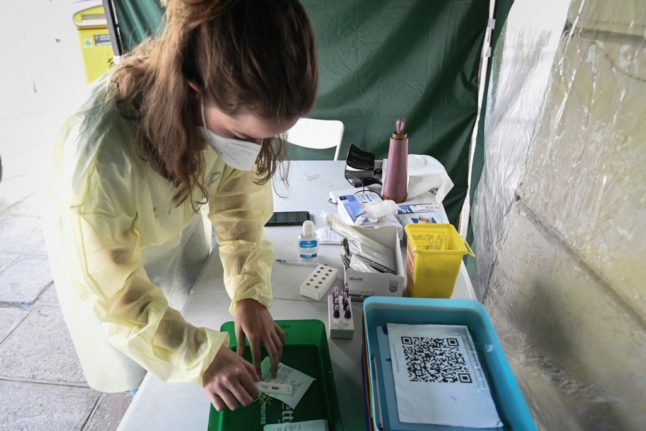Covid-19 has been making a comeback in France since the end of July, via the new ‘Eris’ variant, or EG-5 strain, which has been connected to over a third (35 percent) of cases of the virus sequenced in France recently.
The variant is also spreading in Italy, the UK and the United States, and the World Health Organisation has announced that it is “closely monitoring the situation”.
Here's the latest variant picture for France.
The new EG.5.* "Eris" variant (34%) has been rising quite rapidly during July, and is now dominant over XBB.1.9.* "Hyperion" (22%), XBB.1.16.* "Arcturus" (14%) and XBB.1.5.* "Kraken" (14%).
More details:https://t.co/9wVn5KDCmN pic.twitter.com/u0AOISy8Ck
— Mike Honey (@Mike_Honey_) August 6, 2023
Santé Publique France said on August 1st in their weekly bulletin that they had recorded a 26 percent increase in emergency room visits for suspected Covid-19 infection during the week of July 24th to 30th in comparison to the week previous.
This was particularly pronounced for older people, but “spanned age categories”.
Experts have said that ‘Eris’ is highly contagious – one professor at the University of Montpellier, Mircea Sofonea, told Le Figaro that the new strain is “more efficient in terms of transmission and […] is also more efficient in terms of immune escape”.
Nevertheless, Sofonea noted that the variant could be gaining ground simply due to a “natural immune decline in the general population”.
The professor also told Le Figaro that there is no data indicating that this variation or its symptoms are particularly severe.
Similar to Omicron variants, symptoms such as cough, high fever, and runny nose remain common.
Epidemiologist Antoine Flahaul told Actu France that “there are no particularly worrying characteristics with this new variant”, but advised that people still exercise caution.
Notably, there was an upturn in cases following the annual Fêtes de Bayonne in French Basque country, which attracted over 1.3 million people. Sébastien Boucher, head of Axbio laboratories in the area told France Bleu that his centres recorded a 20 percent positivity rate in test before the festival, and a 35 percent rate afterwards in the area around Bayonne.
Local media reported that pharmacies ran out of self-tests at the start of the festival, and that testing appointments increased significantly amid the Fête.
In February, the French government dropped the requirement to isolate after a positive Covid-19 test result, but health experts still recommend protective steps such as avoiding contact with immune-compromised people and informing those you were in contact with while contagious.



 Please whitelist us to continue reading.
Please whitelist us to continue reading.
Member comments